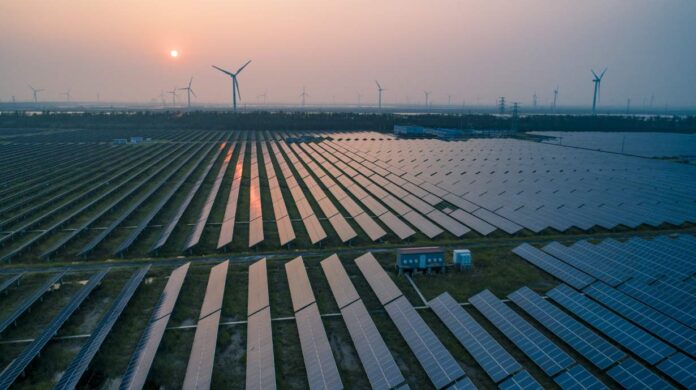Operators can become greener with the deployment of 5G and use 5G to propel sustainability initiatives in other sectors
Telecommunications and technology firms the world over are focused on delivering 5G- and internet of things-based solutions—as well as a litany of complementary tech like artificial intelligence, machine learning, edge computing, data analytics engines and more—in service of enterprise digital transformation. These enterprises are investing in technology-enabled business outcomes that create new efficiencies, reduce operational costs and open up new revenue-generating opportunities.
Both the buyers and the sellers in this equation are looking to monetize their investments, whether that’s the network, the sensor, the software, the platform, the bundled product, or the end result. While these stakeholders work on implementing and deriving value from execution on technology strategies, they’re also pursuing a separate but very much related goal—sustainability. The logic around corporate sustainability initiatives has two primary thrusts: first, with increasing urgency around carbon emissions, power consumption and other macro environmental factors, implementing green practices where possible is the right thing to do; second, a more efficient, sustainable business is very likely a more profitable, more valuable business. When you consider those two thrusts in a larger, longer-term context, a more sustainable world with a more predictable future environmental outlook is inherently more stable. And stability is good for business.
Discussing the relationship between sustainability and business success, Ericsson North America Chief Technology Officer Mike Murphy pointed out that investors and financial firms now consider sustainability a critical factor in determining the long-term value of a business.
Sustainability is “not just about helping yourself”
Sustainability is “not just about helping yourself,” he said. “It’s become a business imperative. And so it’s a business imperative in general, and our customers are putting demands on us to support them in this regard. And that’s showing up in RFPs…The whole ecosystem is moving towards a situation where business success demands a strong sustainability program as well.”
As for the role of the communications service provider in all this, Verizon Chief Sustainability Officer Jim Gowen explained, “I’d say we are probably responsible for the biggest enabling role in changing the way the world really lives sustainably with things like 5G and IoT.”
Verizon is working to reduce its environmental impact and transition to a greener grid. Given that the company’s biggest impact is around energy consumption, Gowen said that’s where the investment focus is; this includes some 20 renewable energy purchase agreements that currently provide 2.6 gigawatts of power. The long goal is net-zero operations by 2035, which includes fuels, energy, value chain and supply chain.
“Energy is what drives our data centers and our networks, so that’s why we’ve put our focus here,” Gowen said. On the big picture role of operators, he said: “Selfishly, I’d say we are probably responsible for the biggest enabling role in changing the way the world really lives sustainability with things like 5G and IoT and sensors. Disney World, for example, and the way you can find a parking spot now. Silly example, but it’s really important when you think about its impact on driving. Or addressing water pipe leaks in New York City. All these things are done through sensors running on a network, and 90% of the time these days, it’s a wireless network. Irrigation, remote working. There are so many opportunities for technology companies — more than any other industry out there, I believe — to really change the way the world works.”
Survey: Majority of network professional see sustainability efforts as “extremely important”
A survey from GSMA Intelligence and Nokia found that to address the growing concerns around sustainability and energy efficiency, more than 30% of wireless carriers have made public commitments that align with the Paris Agreement’s effort to curb further damage to our climate. Additionally, a staggering 83% of network professionals rate energy efficiency as “extremely important” or “very important” in their network transformation strategy.
Various factors, such as the rising price of energy costs and government requirements, are driving the increased attention that operators are dedicating to reducing their consumption; however, one motivator is leading the pack: customer expectations.
Customers, both consumers and at the enterprise level, now consider the real-world green capabilities and strategies of an operator when choosing to go into business with them, and operators are starting to feel the pressure. The Nokia/GSMA survey found that 50% of network professionals said fulfilling customer expectations is the primary goals driving their network energy efficiency strategy.
Coming in at a not-so-close second is “cost savings” at 27%, followed by “showing environmental consciousness and social responsiveness” (20%) and finally, “fulfilling government requirements” (3%).
“Sustainability is becoming a business-critical topic and it involves many stockholders and broad involvement in our customer base,” said Volker Held, head of marketing for managed services at Nokia. “It is also being used as criteria in the stock market. There is some evidence that companies that are more sustainable, have an advantage in their evaluation at the stock market.”

